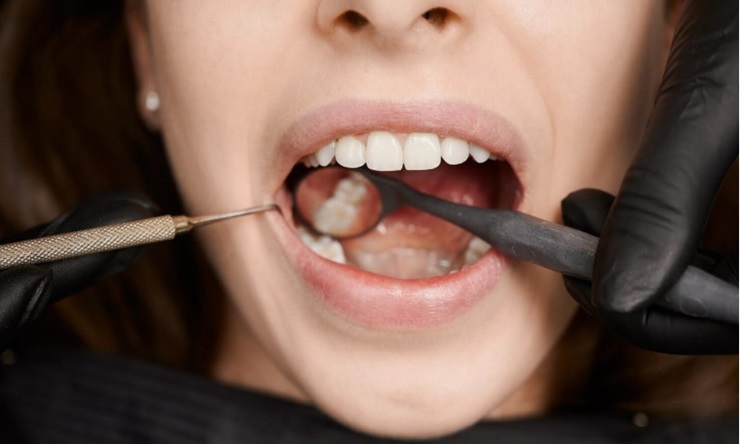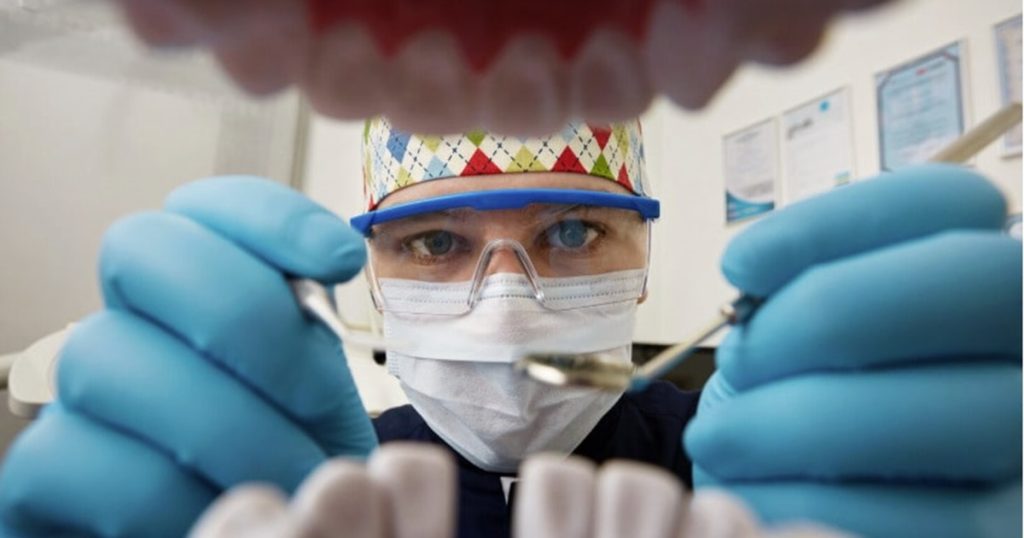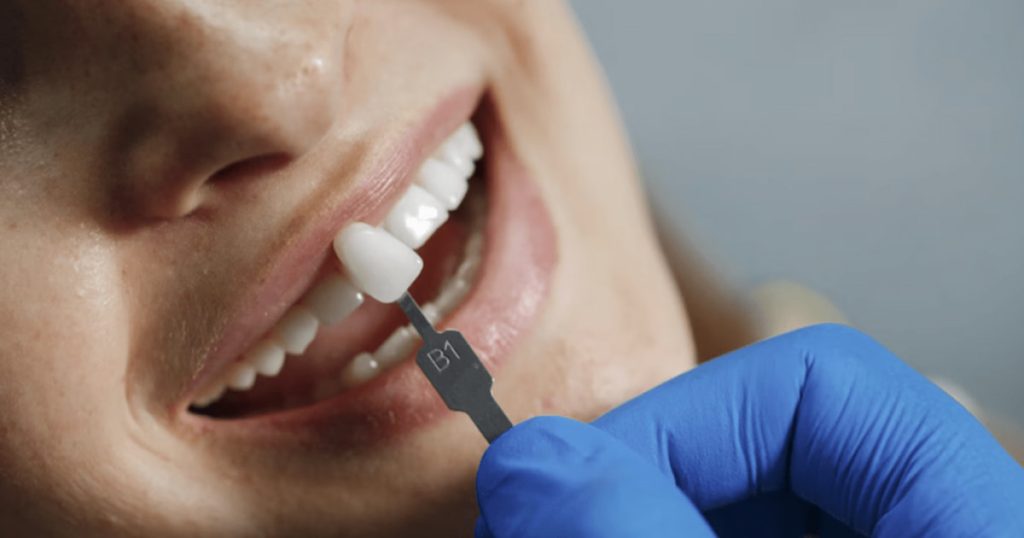The good news is, dental implants can’t get cavities. Unlike your natural teeth, which are made of enamel and can decay, implants are made from titanium and ceramic. These materials simply don’t rot, so you don’t have to worry about cavities or infections forming on the implant itself if you take care of them. However, infections are still a possibility, especially in your gums and the tissues around the implant. To prevent any issues after dental implants, we provided all the information you need in this blog post.
Do Dental Implants Get Cavities?
No, dental implants can’t get cavities. They’re typically crafted from materials like porcelain or ceramic, which don’t decay. However, even though the implant itself is safe from cavities, it’s still super important to practice excellent oral hygiene. If you don’t, you risk damaging the implant and could even get cavities in your remaining natural teeth.
Learn more about the differences between dental implants and dentures to make an informed decision.
Why Dental Implants Don’t Develop Cavities
Because they aren’t made of natural tooth material. Your real teeth have a protective outer layer called enamel, which can break down from acids and bacteria, leading to cavities. Dental implants are different. They’re built from materials that don’t decay:
- Implant Post (Titanium Screw): This acts like the root of your tooth and is securely placed in your jawbone.
- Abutment: This piece connects the implant post to your new tooth.
- Crown (Artificial Tooth): This is the visible part, typically made from ceramic or porcelain. These materials can match your natural teeth perfectly.
Since none of these components is organic, they can’t develop cavities.
Can Dental Implants Get Infected?

Yes, dental implants can get infected, even though they have a high success rate. These infections are known as peri-implantitis, and they involve inflammation of the soft tissues and bone surrounding the implant. If not caught early, an infection can lead to the loss of your implant because it damages the supporting bone.
Bacteria quickly build up around an implant once it’s in your mouth. If you don’t maintain good oral hygiene, these bacteria can cause inflammation. Unlike natural teeth, implants don’t have the same protective tissue barrier, so infections can spread to the bone very quickly.
Can Plaque Build Up on Dental Implants?
Yes, plaque can absolutely build up on dental implants. If not removed, plaque can cause gum inflammation (peri-implant mucositis), which may progress to peri-implantitis, a serious infection that damages the bone supporting the implant and can lead to implant failure. To avoid this, it’s you need to brush with a soft-bristled toothbrush, use implant-safe floss or a water flosser, and get professional cleanings regularly. According to information from the Mayo Clinic, maintaining good oral hygiene is important for the long-term success of dental implants.
Causes of Infection Around Implants
Dental implants, unfortunately, can be quite susceptible to bacterial infection. This risk often begins right from the operating room; if surgical gloves or instruments aren’t fully sterile, bacteria can easily find their way onto the implant. Post-surgery, the complications don’t stop there.
Persistent bacteria, leftover cement beneath the gumline, and microscopic gaps in the implant itself all create opportunities for infection. The implant’s surface design can be another culprit; grooves tend to trap bacteria, while sharp edges may irritate or injure the surrounding gum tissue, further increasing the risk.
Personalized Support for Dental Implants
At Woodbridge Smile Centre, our expert team is here to help you protect your dental implants and overall oral health. Whether you’re noticing signs of infection or just want to ensure your implants last, we’re here to help.
Symptoms of Implant Infection

If you’ve recently had dental implants placed, it’s important to watch for early signs of complications, which include:
- Sore or tender gums
- Pain when biting down
- Loose dental implant
- Signs of infection or inflammation (possible peri-implantitis)
Note: If you notice any of these symptoms, contact your oral surgeon or dentist immediately. Early treatment can prevent further complications like bone loss or implant failure.
How to Prevent Infections and Maintain Implant Health

While dental implants aren’t susceptible to decay the way natural teeth are, they still demand consistent maintenance to ensure the health of your gums and surrounding tissue. To help prevent complications like peri-implantitis, follow these tips:
1- Brush Twice Daily with a Soft-Bristled Toothbrush
Use a soft-bristle brush to gently clean around your implant. Hard bristles can damage your gums and push bacteria into tiny cuts, increasing the risk of infection.
2- Floss Daily (or Use a Water Flosser)

Implant-friendly floss or a water flosser is ideal. Regular plastic floss can shed particles that may irritate the gums. Floss designed for bridges or crowns is a safer alternative, especially if you’re still deciding between tooth replacement options like dental implants and bridges. Understanding the maintenance for each can help you choose what suits you best.
3- Choose Implant-Safe Toothpaste
Avoid whitening toothpaste with baking soda or peroxide. These can scratch and damage the protective surface of implant crowns. Ask your oral surgeon for recommendations.
4- Use an Antibacterial Mouthwash
A gentle, alcohol-free antibacterial rinse can help reduce bacteria buildup around the implant site and prevent infection.
5- Schedule Regular Dental Checkups
Routine professional cleanings allow your dentist to monitor the health of your implant and catch any early signs of trouble.
6- Avoid Hard and Sticky Foods

Chewing hard or sticky foods can stress the implant and potentially loosen or damage it over time, especially during the healing phase. If you’re experiencing discomfort when eating foods after your procedure, it’s important to know how to relieve pain from dental implants.
7- Brush Carefully Around and Under the Implant Crown
Use angled toothbrushes if needed to reach tricky spots, especially around molars. Bacteria can build up in these areas if not cleaned thoroughly.
For a more complete guide, be sure to read how to take care of dental implants for expert advice on long-term implant care.
Sum up
So, can dental implants get cavities? No, they can’t! Implants themselves are made of materials that don’t decay like natural teeth. But that doesn’t mean you can skip brushing and flossing. Plaque and bacteria can still build up around your implants, which can harm your gums and the bone supporting the implant. To keep your implants healthy and strong for a long time, make sure to brush and floss regularly, and don’t forget your professional dental cleanings and checkups to prevent cavities or infections.
Missing multiple teeth? All-on-4 implants in Woodbridge offer a strong, natural-looking solution that might be exactly what you need.
FAQs
Do dental implants get cavities?
No, dental implants do not decay like natural teeth do. But you still need to maintain them regularly to care for your gums and surrounding tissue.
Do dental implants ever get infected?
Yes, implants can become infected, especially if oral hygiene is poor. This infection is known as peri-implantitis, and it affects the gum and bone around the implant. Early symptoms include swollen gums, tenderness, and bleeding.
What is the most common problem with dental implants?
The most common issue is peri-implantitis, an inflammatory condition that can lead to gum infection and bone loss around the implant. It’s usually caused by poor oral hygiene or smoking.
Do dental implants corrode?
No, dental implants do not corrode. They are typically made from biocompatible materials like titanium, which is highly resistant to corrosion and designed to integrate safely with the body.
Have you ever dealt with cavities, gum infections, or dental implant issues? Share your experience in the comments below! And if you have any questions, feel free to ask.







